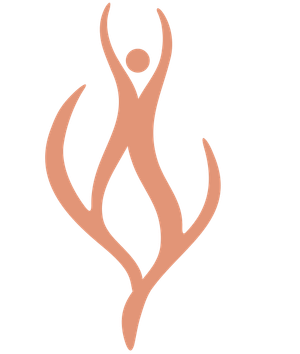Menopause is a phase that brings about a lot of changes in a woman's life, including physical, emotional, and psychological changes. One of the most common symptoms experienced by women during menopause is stress and anxiety. In fact, studies have shown that women going through menopause are more likely to experience anxiety and depression than at any other time in their lives.
It is important to note that stress and anxiety during menopause are not a sign of weakness or a character flaw. They are a natural response to the hormonal changes happening in a woman's body. However, it is important to manage these symptoms to improve overall quality of life.
Let's explore some coping strategies that can help women manage stress and anxiety during menopause. We will discuss lifestyle changes, such as exercise and diet modifications, as well as relaxation techniques and therapy options. By implementing these strategies, women can reduce stress and anxiety and improve their overall well-being during this transitional phase of life.
Understanding Menopause
Menopause is a natural biological process that marks the end of a woman's reproductive years. It usually occurs between the ages of 45 and 55, but can occur earlier or later. During menopause, the body goes through significant hormonal changes as the ovaries stop producing eggs and the levels of estrogen and progesterone decrease. Some even relate it to reverse puberty, instead of gaining hormones we are losing them.

Symptoms of Menopause
The symptoms of menopause varies from woman to woman, no one goes through it the same way or the same time. But there are some common symptoms including hot flashes, night sweats, vaginal dryness, mood swings, and difficulty sleeping. These symptoms can be uncomfortable and often disruptive to daily life, but there are ways to manage them.
Stress and Anxiety in Menopause
Stress and anxiety are common during menopause due to the hormonal changes and other life changes that often occur during this time. It's important to recognize the signs of stress and anxiety and take steps to manage them.
Some strategies for coping with stress and anxiety during menopause include, regular exercise, such as walking, yoga, or swimming, deep breathing exercises or meditation, talking to a trusted friend or therapist, eating a healthy diet and getting enough sleep, taking breaks and practicing self-care
By understanding the symptoms of menopause and taking steps to manage stress and anxiety, women can navigate this transition with greater ease and comfort.
Lifestyle Management
Diet and Nutrition

Fiber can help you control your diet
Maintaining a balanced diet can help reduce stress and anxiety during menopause. We recommend consuming foods that are rich in omega-3 fatty acids, such as salmon, flaxseeds, and walnuts. These foods can help reduce inflammation and promote brain health. Additionally, we suggest limiting caffeine and alcohol intake as they can increase anxiety and disrupt sleep patterns.

Exercise and Physical Activity
Regular exercise can help reduce stress and anxiety during menopause. We suggest engaging in activities such as yoga, walking, or swimming for at least 30 minutes per day. Exercise can help promote better sleep, reduce inflammation, and release endorphins, which can improve mood.
Sleep and Relaxation Techniques
Getting enough sleep is essential for managing stress and anxiety during menopause. We recommend establishing a consistent sleep schedule and creating a relaxing bedtime routine. This may include taking a warm bath, reading a book, or practicing deep breathing exercises. Additionally, we suggest trying relaxation techniques such as meditation or progressive muscle relaxation to reduce stress and promote relaxation.

Sleep is essential especially during stressful times like menopause
In summary, making lifestyle changes such as maintaining a balanced diet, engaging in regular exercise, and practicing relaxation techniques can help manage stress and anxiety during menopause.
Psychological Strategies
When it comes to coping with stress and anxiety during menopause, there are a variety of psychological strategies that can be effective.
Cognitive Behavioral Therapy

Cognitive Behavioral Therapy (CBT) is a type of talk therapy that focuses on changing negative thought patterns and behaviors. It can be particularly helpful for managing anxiety and depression. During CBT, a therapist will work with you to identify negative thoughts and beliefs, and help you develop new, more positive ways of thinking. They will also help you develop coping strategies to deal with stressful situations.
Mindfulness and Meditation

Mindfulness and meditation can be effective tools for managing stress and anxiety. Mindfulness involves paying attention to the present moment, without judgment. This can help you become more aware of your thoughts and feelings, and better able to manage them. Meditation involves focusing your attention on a specific object or thought, and can help you relax and reduce stress.
Support Groups and Counseling

Talking to others who are going through similar experiences can be incredibly helpful. Support groups can provide a safe and supportive environment for women to share their experiences and feelings. Counseling can also be helpful, as it provides an opportunity to talk to a professional who can offer guidance and support.
Overall, there are a variety of psychological strategies that can be effective for coping with stress and anxiety during menopause. It's important to find the strategies that work best for you, and to be patient and persistent in your efforts to manage your symptoms.
Medical Interventions
Hormone Replacement Therapy

Hormone Replacement Therapy (HRT) is a medical intervention that can be used to manage the symptoms of menopause, including stress and anxiety. HRT works by replacing the hormones that the body stops producing during menopause. Estrogen is the most commonly prescribed hormone for HRT. It can be taken in various forms, such as pills, patches, gels, or creams. However, HRT is not suitable for everyone, and it can have some side effects, such as an increased risk of breast cancer, blood clots, and stroke. Therefore, it is important to discuss the risks and benefits of HRT with a healthcare provider before starting it.
Alternative Medicine

Alternative medicine refers to non-conventional treatments that can be used to manage stress and anxiety during menopause. Some examples of alternative medicine include acupuncture, yoga, meditation, and herbal supplements. These treatments are believed to work by balancing the body's energy and promoting relaxation. However, the effectiveness of alternative medicine for menopause symptoms is not well-established, and some treatments may interact with medications or have side effects. Therefore, it is important to consult a healthcare provider before trying any alternative medicine treatment.
In conclusion, medical interventions such as HRT and alternative medicine can be used to manage stress and anxiety during menopause. However, it is important to discuss the risks and benefits of these treatments with a healthcare provider before starting them. Additionally, lifestyle changes, such as regular exercise, healthy diet, and stress-management techniques, can also be effective in managing menopause symptoms.
Until Next, Stay Vibrant!

Check out our podcast






